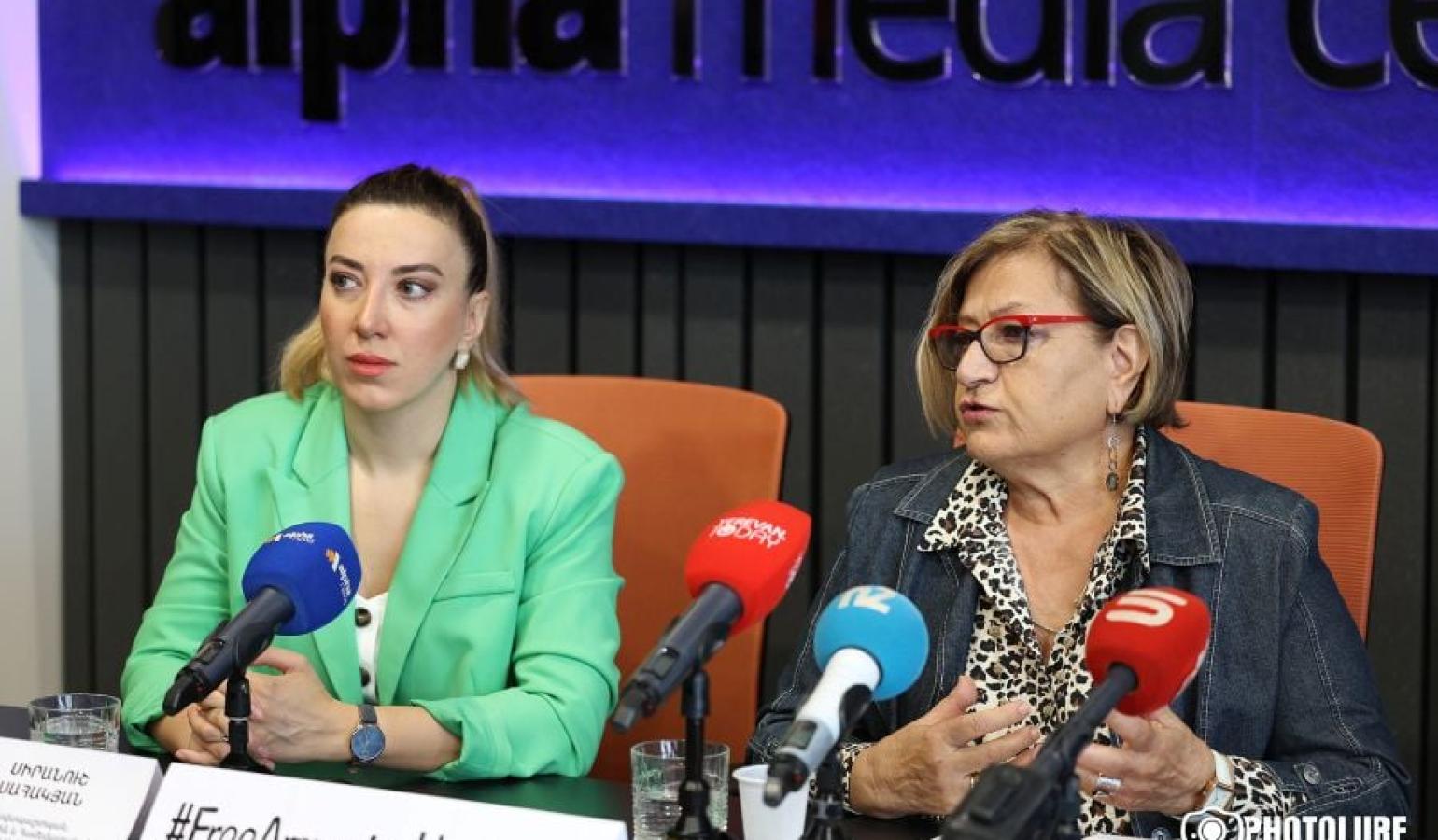
A press conference was held on October 2 titled "Protection of Armenian Captives: How to help former captives overcome post-traumatic disorders."
The speakers at the press conference were Siranush Sahakyan, head of the "Center for International and Comparative Law," Hilda Choboyan, president of the "Law and Conflict Resolution in the South Caucasus," and Khachatur Gasparyan, director of the "Intra" Mental Health Center.
Addressing the issue, Sahakyan emphasized that the failure to repatriate a captive leads to the violation of several rights, including the right to personal liberty. According to Sahakyan, it is a well-known fact that an anti-Armenian policy is established in Azerbaijan, due to which Armenians are subjected to discrimination and the most severe violations of human rights. There are court decisions confirming these facts, and this is not merely the Armenian side's narrative. "Armenians held there are subjected to cruel, inhuman treatment, and this is the reason why after repatriation they face psychological problems, and we are trying to find ways to overcome those problems," said Sahakyan.
Speaking about the repatriated individuals, the human rights defender noted that in addition to the psychological and social support provided to them, legal assistance must also be offered, as the issue of captives is first and foremost a legal one.
"Our meetings with the captives, both in group and individual formats, show that there is a certain degree of 'stigmatized' attitude in our society. Captives are sometimes viewed as an enemy, alien, undesirable segment of society or the homeland. Of course, not everyone, but such a phenomenon exists," expressed Khachatur Gasparyan with concern. According to him, they are currently working with the Red Cross on certain individual cases and are trying to conduct an assessment of the psychological state of the returned captives.
Hilda Choboyan also expressed her concern: "In the last months of 2023, we registered that the issue of the captives has faded in the general consciousness of the Armenian people. In the period following the war, many movements were created for the release of the captives, but in the following months, these movements faded. The presence of captives exerts heavy psychological pressure not only on their families but on the entire Armenian people. We feel humiliated when we see our brothers and sisters being subjected to torture, and no one is talking about it."
Speaking about the program implemented by their organization, Choboyan said that they sought and found one sponsor for each family of an Armenian captive: "The mayors of French cities joined this initiative. We sponsored about 15-16 individuals, and later organized visits to Armenia. The Mayor of Lyon was the first to become a sponsor for one Armenian captive, he came, met with his parents, raised the issue, and petitioned for the release of his sponsored Armenian captive. Since 2023, we have also started organizing collective sponsorship by French National Assembly members."
Hilda Choboyan expressed concern that former Armenian captives freed from captivity face major problems, both psychological and social. She also informed that they have started a new program for the psychological support of the released captives.
In the published and initialed text of the peace agreement signed between Armenia and Azerbaijan on August 8, there is a provision according to which the states commit to withdraw, or waive, interstate claims. Armenia has one interstate claim at the UN Court and four at the European Court. Addressing this issue, Siranush Sahakyan informed that certain groups of captives have been represented through individual complaints, which are in no way identical to state cases. However, a group of captives was represented through an interstate complaint; the issue of the captives was raised both at the UN Court and the ECHR. "Therefore, the withdrawal of interstate claims could become a reality for us, which would block the interstate channel of legal protection, and the entire burden of future legal proceedings would fall on human rights defenders and the families. The peace agreement does not, and could not, regulate the fate of individual claims. In this regard, I assure you that the arrangements have no significance for us, and we are pursuing the completion of the legal processes initiated by us," said Sahakyan.
The human rights defender also reported that the ECHR applied interim measures in relation to 23 Armenians held in Azerbaijan, demanding that Azerbaijan refrain from actions that could threaten the well-being, physical safety, and lives of the Armenian captives. Azerbaijan has tried to resist the fulfillment of this obligation throughout this period. In particular, in September, the Azerbaijani side submitted a motion to the ECHR, asking for the interim measures applied to be canceled: "Of course, we objected. On September 24, the court made a decision that the applied measures must remain unchanged. Even now, the Armenian hostages are under the protection of special measures of international courts. The Azerbaijani side is obliged to submit a report on the conditions of their detention, health status, and other circumstances with a certain regularity. The deadline for submitting the report is November 4," said the rights defender.